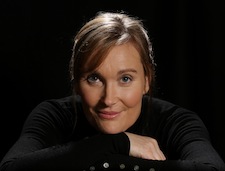
Co-dependence is the socially acceptable face of addiction. Posing as love, loyalty and friendship, often beyond the call of duty, co-dependence is conditional giving (couched as unconditional giving). It is incredibly hard to identify as it is buried in denial which society endorses as just good manners, as being other-centred, as being supportive.
Imagine the shame of discovering that this apparent selfless generosity is actually driven by selfish need and starvation for love and affirmation? It is truly terrifying and devastating for the co-dependent who will therefore cover up any detriment to themselves as a result of this pattern of overt caretaking and feeling on other’s behalf. Instead they will insist that there is nothing wrong, all the while feeling isolated, deeply sorrowful, resentful and taken for granted.
On the receiving end of co-dependent love and attention, you are likely to feel obliged, trapped, suffocated and annoyed. Crucially you will also feel guilty for feeling annoyed. You wonder why are you reacting so angrily to someone’s expressions of care and love? You begin to believe there is something wrong with you, and if you don’t learn how to behave around this emotional enmeshment, there will be.
If your parent is co-dependent you are likely to become shut down and unmotivated, ‘emotionally agoraphobic’. The co-dependent territory is the emotional and every time you express or display emotion, the codependent is there to comment – telling you not to be angry/upset/embarrassed, helping without being invited. As they invade your emotional space, you retreat to an internal world, sending out red herrings of emotions to keep the co-dependent off the scent. But this is a deeply damaging pattern as you will eventually become confused about what you do actually feel and are likely to lose sense of your own emotional identity as you hide yourself deep within. This causes a fractured sense of self that will feel uncomfortable and is likely to motivate you to self medicate – drugs, alcohol, self harm, food, most frequently anorexia or bulimia. All these are common ways that children of co-dependent parents manage their hidden emotional agendas.
As a partner you will feel micro-managed and controlled and are likely to seek to get your needs met outside of the relationship, or become aggressive or conversely depersonalised within it. However, you will have had a part to play, as if your partner is a co-dependent, they will not have sought you out unless you demand this role in them. My guess is that you are troubled in some way and have not yet learned to take responsibility for your own emotional well-being. Few people with a sense of personal value and emotional well-being seeks an addict or co-dependent partner.
As the co-dependent your identity is to caretake: that is who you are. You will insist that others do not worry about you, all the while harbouring the deeply private and often unspoken resentment ‘after all I’ve done for you, you treat me like this…’; a feeling you will deny exists until you hear yourself muttering it one day as you go about your (and everybody else’s business). Try to listen to yourself and take action. I believe that serious illness is related to this kind of resentful living and repressed emotion. When you become aware of it, you can prevent it.
Born of childhood experience where the child bears witness to the price paid by the family of another family member’s overt need and demand, the emerging co-dependent learns to deny their own needs in favour of caretaking others in the hope of indirect affirmation…’what would I do without you, you are such a good girl…’ They are the child who did not get the required care and attention from their family, the child who was abused overtly through violence of some kind, or covertly though neglect. A pernicious cycle is set up priming that child to be that caretaker, and more to seek others who reinforce this behaviour and familiar social role. Thus they unconsciously are drawn to high maintenance individuals who avoid taking emotional responsibility for themselves and perpetuate this cycle. Enter the addict. This couple may then have a child and the whole thing starts again.
Good treatment for co-dependence is hard to come by. Many in the caretaking profession are unaware of their own co-dependence and unwittingly reinforce the denial. Groups for co-dependents, partners of addicts and for adult children of alcoholics provide fellowship for those seeking recovery, and books by authors such as Pia Mellody or Melody Beattie can begin to provide insight. Because it is such a damaging condition that makes love toxic, treatment and counselling is the best way forward. Treatment centres such as my own in London or The Meadows in Arizona are specialists in the field and can provide information, support network and advice as well as counselling and treatment.
Here is a quick checklist; if you answer yes to three or more questions then chances are that you suffer from co-dependence and would benefit from therapy:
1. Do you feel responsible for other people’s feelings, thoughts and needs?
2. Do you often put your needs second?
3. Do you often feel unappreciated and resentful?
4. Do you seem to always choose emotionally or physically unavailable partners?
5. Do you care for others in the hope that they will love you?
6. Are your friends and partners often in a crisis?
7. Are you the rock that others lean on?
8. Do you feel you have to have an answer for other people’s problems?
9. Do you often wonder why others don’t put themselves out for you as you would for them?
10. Do you often feel under too much pressure, having over committed yourself?
Charter Day Care is a centre that offers therapy for trauma, addiction and mental health problems including co-dependency
Like this article? Sign up to our newsletter to get more articles like this delivered straight to your inbox.




















































